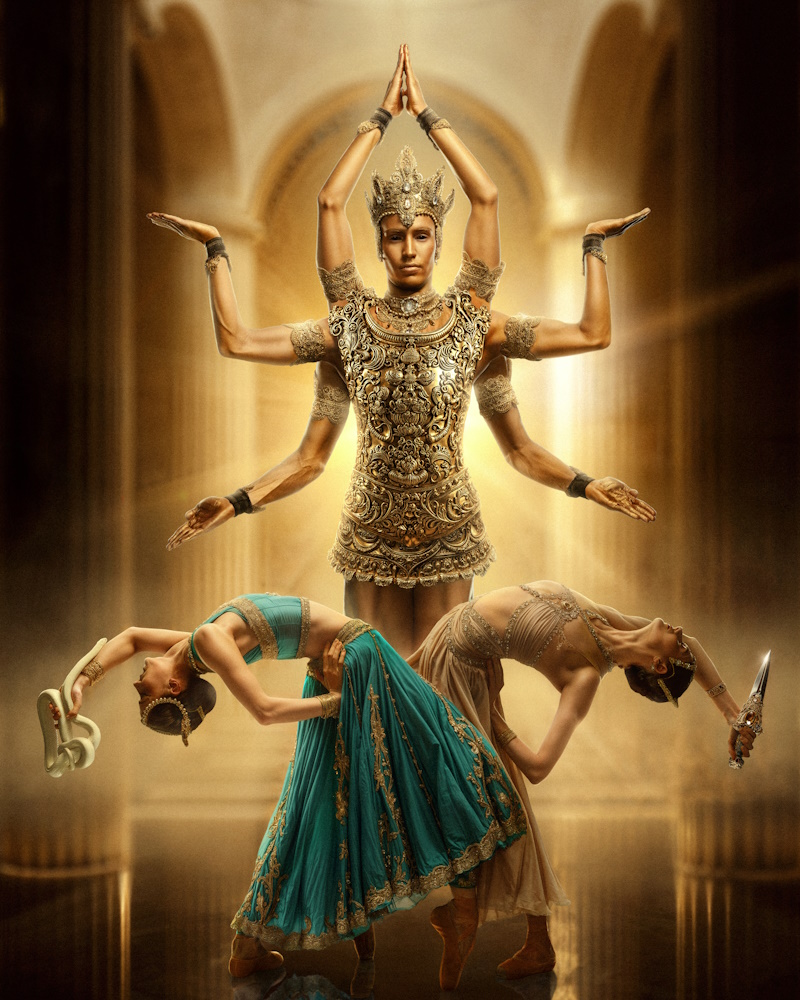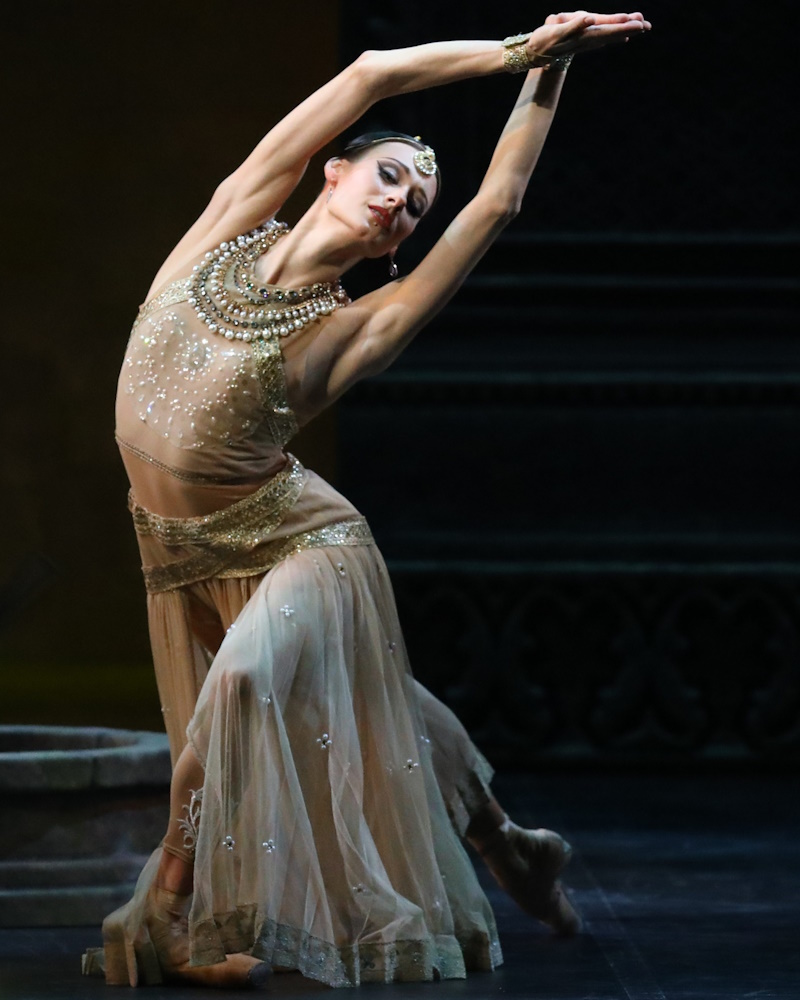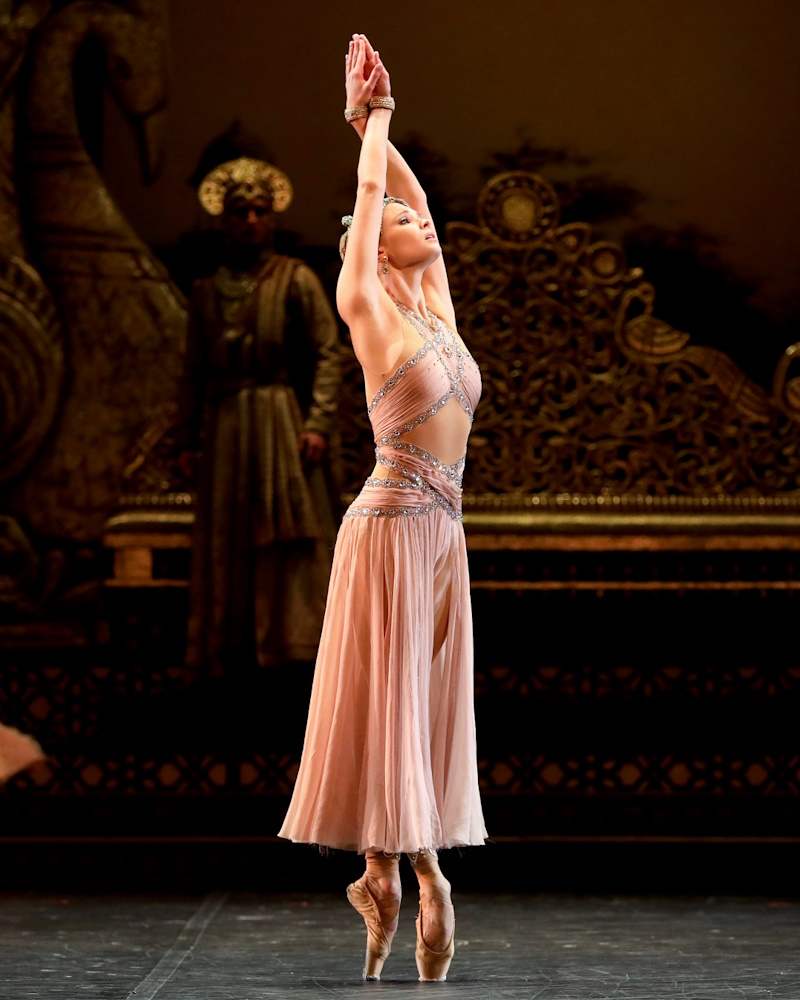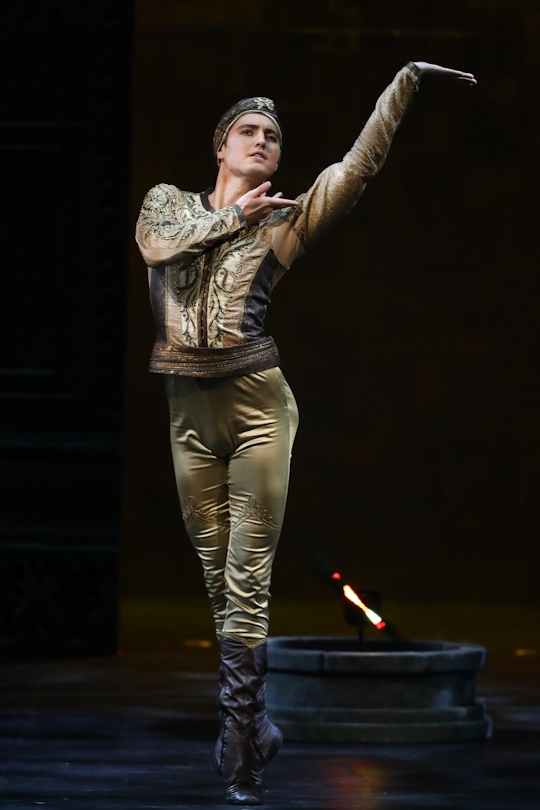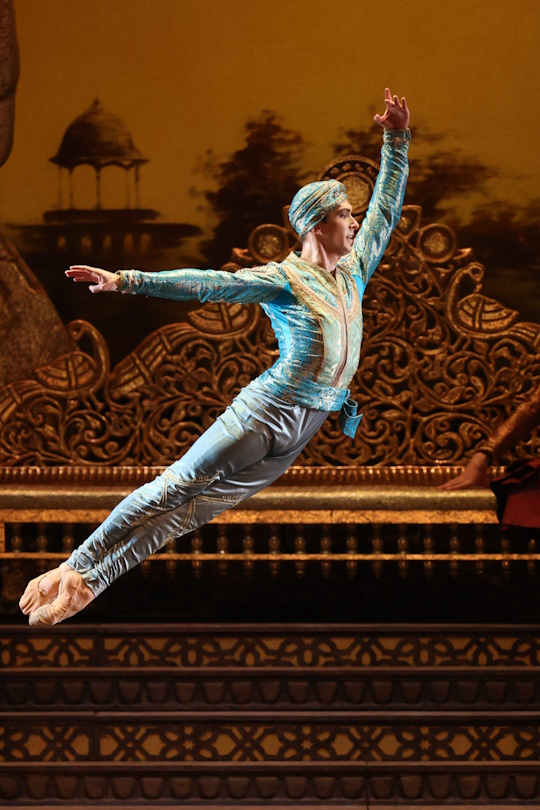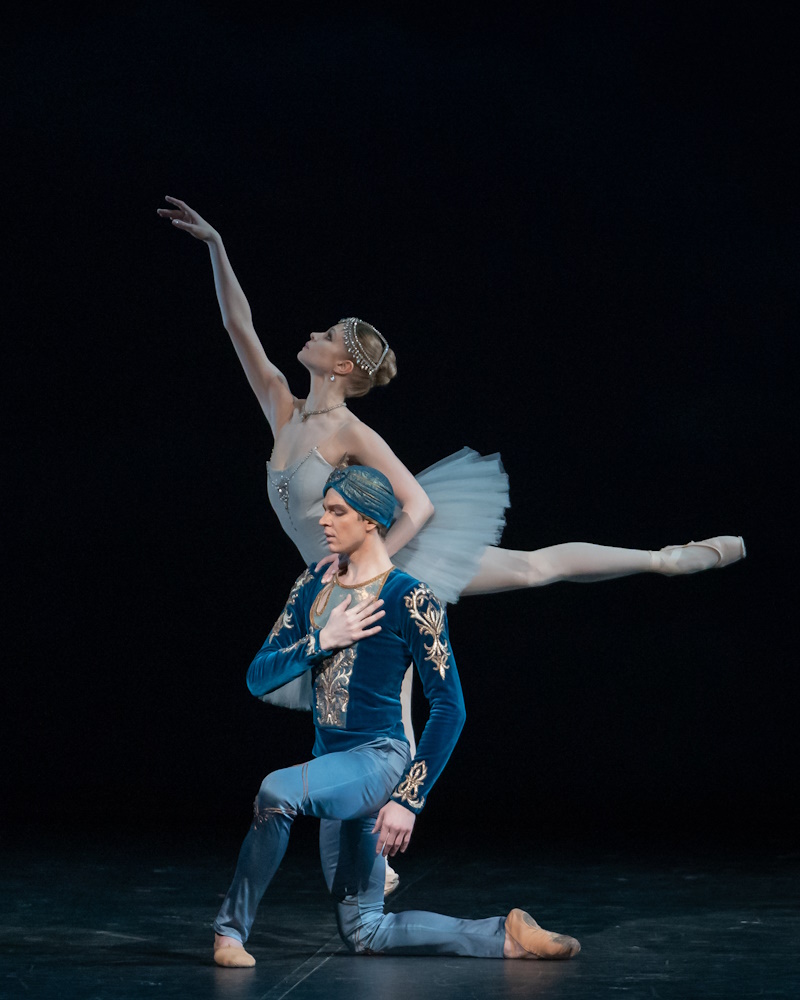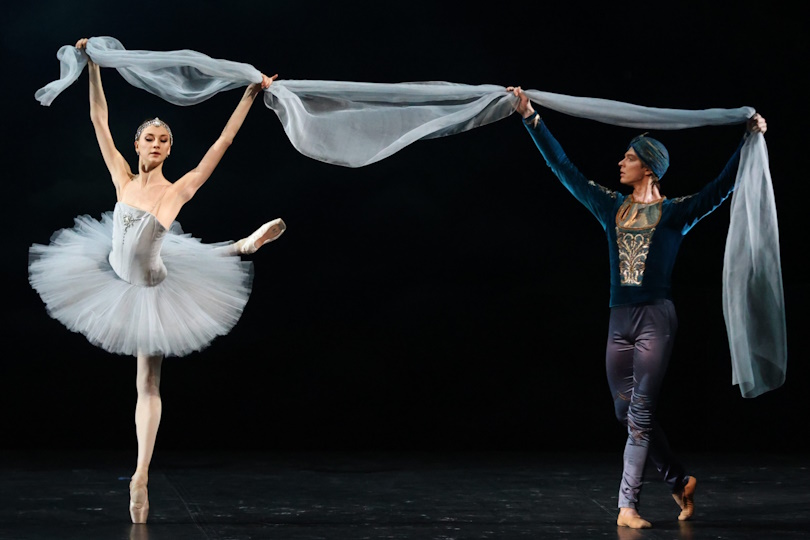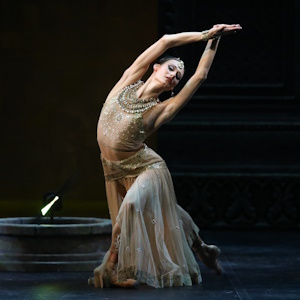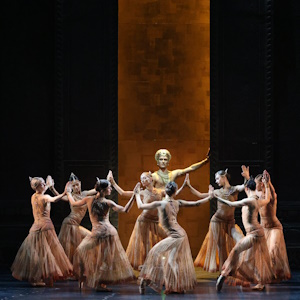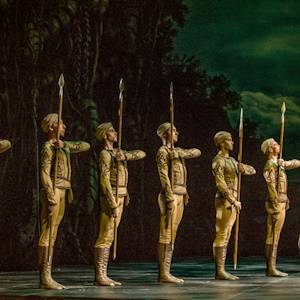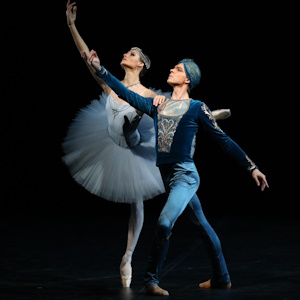La Bayadère
ballet in three acts
music by Ludwig Minkus
The exquisite simplicity of the classics blends with the exotic opulence of the Maharajas in this ballet, which boasts a history of over a hundred and fifty years. Nacho Duato has created a production that harks back to Marius Petipa’s original, preserving the customary order of the scenes and the libretto’s climaxes, and leaving intact valuable pieces of the canonical choreography. At the same time, the ballet has freed itself of anachronisms and static pantomime episodes, replacing them with lavish, sculptural decor. In this story, Ancient India becomes a brilliant backdrop for the love of a temple dancer and a fine warrior who are fated to remain apart in both the real world and the astral one.
Act one
Scene one
The warrior Solor returns from the hunt and sits alone by the sacred fire. At his request, the fakir Magdavaya conveys a message to the beautiful bayadère (temple dancer) Nikiya that Solor will be waiting for her that night.
The festival of fire worship begins with the solemn appearance of the High Brahmin, the priests, and the temple dancers. The highlight of the celebration is Nikiya’s dance.
The High Brahmin, forgetting his sacred office and the vow of celibacy that comes with it, promises Nikiya all the riches of India in exchange for her love. But the temple dancer cannot hide her disgust for the Brahmin.
Night falls. Magdavaya stands guard over the secret meeting of Nikiya and Solor. Solor swears eternal love to Nikiya over the sacred fire. The High Brahmin, witnessing their meeting, decides to take revenge.
Scene two
A hall in the palace of Raja Dugmanta. The Raja announces to his daughter, Gamzatti, that she is to marry Solor. The High Brahmin, seeking to destroy his rival, informs the Raja of the warrior’s love for the temple dancer, Nikiya. Enraged, Dugmanta decides that Nikiya must die. The Brahmin threatens the Raja with the wrath of the gods for the dancer’s death.Gamzatti, overhearing this conversation, invites Nikiya to dance at her wedding. Seemingly by chance, she shows Nikiya a portrait of her fiancé. Nikiya, stricken with despair, is inconsolable. Gamzatti pleads with Nikia to give up Solor, but the temple dancer refuses to yield. In a fit of rage, Nikia raises a dagger against her rival—only to be stopped by a servant at the last moment. The Raja’s daughter vows, “The bayadère will die!”
Act two
Scene three
The square in front of the palace. The betrothal of Gamzatti and Solor is taking place. Nikyia, obliged to dance at the celebration, cannot hide her sorrow. Suddenly, she is presented with a basket of flowers. Hope, love, and joy overwhelm her—she is convinced it is a gift from Solor! But then, a snake emerges from the flowers and delivers a fatal bite to the temple dancer. This is Gamzatti’s revenge. The High Brahmin offers Nikiya an antidote if she agrees to forget Solor, but the bayadère chooses death.
Act three
Scene four
Solor is inconsolable, tormented by remorse. He falls asleep, and the kingdom of the shades appears out of the darkness before him. A long procession of shades descends from the mountain ledges. He sees Nikiya. She is calling him...
Premiere of the production: 4 October 2019
Libretto by Marius Petipa and Sergey Khudekov
- ChoreographyNacho Duato after Marius Petipa
- Stage Designer, Costume DesignerAngelina Atlagić
- Lighting DesignerBrad Fields
- Musical director of the productionPavel Sorokin
- Choreographer’s assistantGentian Doda
- Stage Designer’s assistant (sets)Magdalena Vlajić
- Stage Designer’s assistant (costumes)Srdjan Perić

